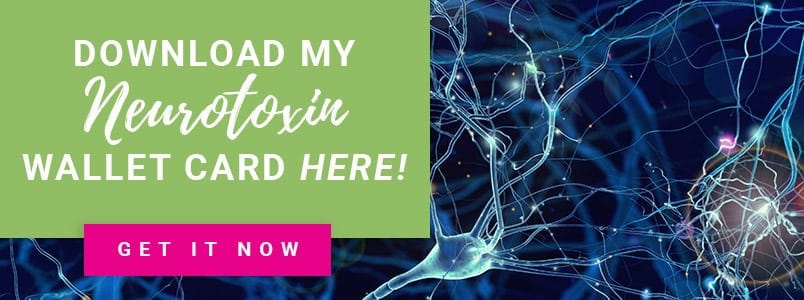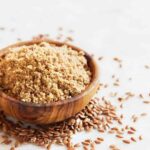What Causes Brain Fog? Clear the Haze and Get Your Life Back

Our bodies are very good at compensating. They will go through a myriad of chemical and neurological changes in an attempt to keep our systems operating in homeostasis.
We bombard them with sugar, additives, and other toxins, and--usually--they still manage to fulfill our daily obligations.
And then, one day, you walk into a room and forget why you went there. You try to recall someone’s name but hit a wall. You feel confused and find you are unable to maintain the awareness and focus that once came so naturally.
The onset is so insidious that you don’t really notice the changes until they are bad enough to make a difference in the quality of your life.
So prevalent is this experience in our society that we have given it a name: brain fog.
The good news is, in many instances, these symptoms are merely your body’s way of telling you it’s time to make some changes in your lifestyle.
What are the Symptoms of Brain Fog?
Brain fog is known by several other names, including mental fog, and cognitive dysfunction. Most people report feeling at least a few of the following symptoms:
- The world is hazy. As the name implies, it can leave someone feeling like they are living in a fog—nothing coming in from any of the five senses seems crystal clear.
- Difficulty concentrating. It takes more time to process incoming information. You read a chapter in a book and then go over it again. You ask people to repeat themselves, not because you didn’t hear them but because you didn’t retain or understand the topic of conversation.
- Lingering fatigue. Many describe the sensation as feeling “groggy.”
- Motivation wanes and confusion increases. Staying on task becomes difficult.
Trouble sleeping through the night. You may get to sleep easily, only to find yourself waking up at 2 am and spending the next few hours tossing and turning.
- Impaired memory. Your short term memory isn’t quite as good as it used to be and your attention wanes. You can’t remember names, or where you just put your keys.
- Irritability and anxiety. You notice that your tolerance threshold has decreased.
- Lack of enthusiasm. Emotions range from apathetic to hopeless to depressed.
What Causes Brain Fog?
The root cause of brain fog is usually an inflammatory response within the brain. Dr. Kharrazian, author of Why Isn’t My Brain Working? explains that microglia, the cells in the brain that make up its immune system, release inflammatory messages to brain tissue.
This response occurs when there is inflammation in other parts of the body, when circulation decreases, when blood sugar is elevated, or when someone is sensitive to chemicals and other environmental pollutants.1
This inflammation then causes the neurons in the brain to fire at a slower rate which in turn decreases mental clarity and the production of energy in the cells—leading to fatigue and, ultimately, the destruction of brain tissue. This process is caused by a number of physiological factors. The most common causes include the following:
1. Stress.
Your body responds to stress by producing adrenaline and cortisol, hormones that create the “fight or flight” response. Your muscles become activated, your heart races, you breathe faster, and your blood pressure rises. You’re ready to face the attacker.
Unfortunately, in modern life stress can be a constant, leading to a build-up of cortisol in the brain that reduces the number of neurons—nerve cells that transmit signals to and from the brain.2
Cortisol also damages the hippocampus, which is responsible for memory.
A study published in the Journal of Neuroscience found that the immune systems of mice subjected to stress attacked their own brains and caused inflammation. This, in turn, caused both memory loss and social avoidance.3
2. Hormonal Changes.
Insulin, a hormone, is produced when there is food, particularly sugar, in our stomach. At one time, when humans were hunter-gatherers, we ate about 20 teaspoons of sugar a year, and all of it was derived from natural sources such as berries.
Fast forward to today’s choices in high-sugar, fast-food substitutes and soda, and it’s not surprising that we are now consuming, on average, 50 teaspoons of sugar a day! This constant bombardment results in addiction and insulin overload which just happens to function as a pro-inflammatory substance.4
The association between cognitive decline and sugar consumption is so strong, says North Caroline functional medical practitioner Dr. Tim Jackson, that "Alzheimer's is nicknamed 'Type III Diabetes' by the medical community."
In addition to cognitive decline, this inflammation in the brain reduces both serotonin and dopamine—substances known as your “happy hormones.”5
3. Leaky Blood Brain Barrier.
I’ve written about “leaky gut” and the effects it can have on your health. It’s a condition in which substances such as yeast, bacteria, food particles, and toxins escape from your gut due to a damaged intestinal lining.
Some of the same factors that cause leaky gut can also contribute to “leaky brain.” These factors include immune-challengers such as gluten sensitivity, heavy metals, and stress.
Dr. Jackson adds that the blood-brain barrier is also damaged by "any sort of chronic infection--viral, bacterial, or fungal. In addition, EMF exposure can damage the blood-brain barrier."
Consistent exposure to these irritants ultimately leads to the destruction of the blood-brain barrier, which can no longer protect the brain from bacteria and other toxins. Inflammation results--as well as the symptoms of brain fog.
4. Candida.
This yeast is normally found within our intestines. Problems arise when it proliferates and overruns the good bacteria—creating a toxic environment. Candida lives off of sugar and produces chemical byproducts in the process, two of which are toxic to your brain—alcohol and acetaldehyde.
The result? Brain fog.
5. Unstable Blood Sugar.
Unstable blood sugar is usually the result of eating processed foods loaded with sugar, white flour, and refined vegetable oils. The rise and fall of blood sugar leads to the release of pro-inflammatory stress hormones and proteins which results in brain fog.
The good news is that a diet consisting of whole foods and complex carbohydrates can alleviate the symptoms fairly quickly.
 6. Low Carbohydrate Diets.
6. Low Carbohydrate Diets.
Chances are that you know someone on the current ketogenic or paleo fads.
One of the many problems with these low-carb diets is this: While the brain represents only about 2 percent of your body mass, it requires about 25 percent of the body’s energy resources, and glucose is its primary fuel. When carbohydrates are restricted and the body’s glucose supply diminishes, brain cells can no longer function at their peak performance.
One study revealed that after just one week on an Atkins-type diet (similar to the “new” keto diet), women performed worse on memory-based tasks.6
Dr. Jackson adds, "Individuals with a specific polymorphism, known as the APO E 4/4 genotype, should not be on high-fat diets. They are also more prone to Alzheimer's disease."
7. Lack of Sleep.
Chronic lack of sleep is linked to heart disease, diabetes, weight gain and, you guessed it, inflammation. On average, about 60 million Americans suffer from chronic sleep disorders.7
8. Environmental Toxins.
Did you know that there are about 870 chemical endocrine disruptors in our environment?8 Top offenders include parabens, phthalates and BPA which can be found in plastics, cleaners, cosmetics and other body care products.
When we add pesticides, herbicides, fuels, and heavy metals to the list, it’s a wonder we can survive at all. These toxins enter the brain via the bloodstream, create inflammation, and lead to brain fog.
9. Dehydration.
Almost 80 percent of your brain is made up of water. When dehydrated, it can no longer function properly—the communication between your neurons slows down and other processes just stop altogether.
A headache is often one of the first signs that your brain is dehydrated. If this continues, brain fog ensues. According to Medical Daily, 75 percent of Americans may suffer from chronic dehydration.9
10. Medications.
The result of some medications is brain fog. So prevalent is this side effect that the National Academy of Medicine Report on Cognitive Aging listed “Managing your Medications” as one of the top three actions to take in order to protect cognitive health.10
A few of these medications include sedatives for sleep disorders or anti-anxiety medications such as Valium, Xanax, Ambien and Lunesta.
11. Autoimmune Disorders.
These types of disorders include rheumatoid arthritis, Hashimoto’s Thyroiditis, lupus, and multiple sclerosis.
Autoimmune disorders are a result of the body’s immune system mistaking body tissues, such as your pancreas or thyroid, as foreign invaders and attacking them. It results in chronic inflammation that ultimately affects the brain.
12. Poor Circulation.
The brain uses about 20 percent of the body’s available oxygen. That’s quite a bit, considering this organ only accounts for about 2 percent of the body, weighing in at about 3 pounds.
When the brain is deprived of oxygen and nutrients due to limited circulation, brain fog results. Decreased circulation can occur for several reasons, including high blood sugar, smoking, hypothyroidism, stress, and anemia.
Another issue that may occur is congestion of the jugular vein, which leads to poor lymph drainage from the brain. This may be caused by viral damage to the vascular system.
13. Alcohol Consumption.
Not a glass or two of red wine, a couple of times a week, but the brain cell die-off from regular or frequent alcohol consumption dulls the synaptic responses and clouds thinking, even when a person is not drinking.
Alcohol is also a cause of leaky gut, which is also leads to a leaky blood-brain barrier.
Is There a Cure for Brain Fog?
Fortunately, in almost all cases, brain fog is reversible and can be cured. It’s important to address any loss of cognitive ability as soon as you’re aware of it, though, because we don’t regenerate brain easily in later life, just like we don’t regenerate bone.
The core principles associated with a healthy body are also true for the brain:
Eat a whole foods diet. I recommend a diet that consists of at least 60 percent raw vegetables, greens, superfoods, and fruits. Be sure to include these anti-inflammatory foods: leafy greens, blueberries and cherries, olive oil, avocados, legumes, flax, and walnuts. Replace omega-6 rich vegetable oils with fats that are high in brain-healthy omega-3s, such as extra virgin olive oil, wild-caught fish, and flaxseed.
Low-quality omega-6 is found in vegetable oil, conventionally raised eggs, and pre-packaged snacks. Reducing your intake of omega-6 fatty acids has been shown to reduce both inflammation and chronic pain.11
- Stay hydrated. Resist the urge to drink water only after you notice you’re parched. By that time, your body may be dehydrated and trying to conserve water by holding on to what it’s got.
According to an article in the Journal of the American College of Nutrition, “Being dehydrated by just 2% impairs performance in tasks that require attention, psychomotor, and immediate memory skills.”12
But, be sure you drink clean water, because most drinking water is toxic.
- Detox. When you realize that Americans are exposed to over 80,000 chemicals, it becomes clear that undergoing a yearly detox program is essential to health and mental clarity.
I recommend a 26-day detox that systematically cleans all the major body systems, starting with the colon. It also addresses food allergies by testing for food sensitivities via an elimination diet. Since food allergies cause rampant inflammation in the body, it is essential to identify and address them.
- Exercise. Dr. Mark Hyman, medical director and founder of The UltraWellness Center at the Cleveland Clinic, recommends adding interval training to your exercise regime.
This involves exercising at about 90 percent of your peak heart rate for 30 to 60 seconds followed by exercising at about 60 percent of your peak heart rate for three to five minutes. You continue in this fashion for about 30 minutes. This type of exercise has been shown to trigger a positive metabolic effect.4
Of course, the most important aspect of any exercise program is that you enjoy it; otherwise, it will be a short-lived venture. Hike, bike, swim, play tennis, walk through your neighborhood botanical gardens—just make sure you get up and move every day, preferably in the sunshine for some brain-healthy Vitamin D.
- Relax. Stress and its effects can be overcome. Make some time each day to unwind by doing something that you love that is also relaxing.
Some activities that are especially relaxing and supportive to a healthy brain include meditation, yoga, listening to music or relaxation tapes. A wealth of relaxation music and guided meditations can be found on YouTube.
- Sleep. Sleep experts suggest the body needs anywhere from seven to nine hours of sleep every day. In a society run amuck in never-ending activities, most people fall short of their optimum sleeping hours.
Unfortunately, getting extra shuteye on the weekends to make up for long work days during the week does not bring the body back to a fully functioning level.
When University of Chicago researchers studied student volunteers who slept only four hours a night for six nights, they found all had developed high blood pressure, increased cortisol levels, reduced antibodies, and signs of insulin resistance.13
- Adjust your Medications. Talk to your healthcare practitioner about adjusting your medications. While I believe that a whole-foods, mostly plant-based diet and a healthy lifestyle is the best medicine, if you find yourself taking a drug that has left you feeling the effects of brain fog, talk to your practitioner.
A different dose or medication may have a tremendous impact on how you are feeling. And there are virtually always supportive natural supplements as a first line of defense, that don’t have the toxic side effects of pharmaceutical chemical drugs.
- Supplement. While no herbs, vitamins or minerals can overcome a diet of processed foods, there are some supplements that, when added to a good whole foods diet, can help your brain heal.
- Magnesium has been shown to increase memory and reduce the symptoms of brain fog. It is found in high concentrations in pumpkin seeds, almonds, leafy greens, avocados and beans. Dr. Jackson cites magnesium L-Threonate as a form of magnesium that can cross the blood-brain barrier: "It has been shown to help sleep and even aid recovery from concussions and other mild traumatic brain injuries."
- Trace minerals are essential for all body processes, but because modern agricultural practices have stripped soil of nutrients, even organic produce can be low in the minerals we need--a fulvic acid supplement is a natural, plant-based source of trace minerals needed for brain function, hormone modulation, and energy. Probiotics and prebiotics are key for creating and maintaining good gut flora, which in turn has been shown in an explosion of new research to be the “second brain,” responsible for hormones and processes that help regulate mood, sleep, appetite, cravings, nutrient absorption, and more factors directly related to brain fog issues. Add more fermented foods to your diet, and take a good probiotic/prebiotic supplement to build and heal your gut.
- Ginkgo biloba has been used in Chinese medicine for thousands of years. As an herb, it improves circulation to the brain, boosts neurotransmitters, enhances memory, increases serotonin and dopamine, and lowers the level of cortisol.
- Curcumin is a component of turmeric, a spice widely used in curry dishes. It has been shown to have strong anti-inflammatory properties and has proven beneficial for those suffering from arthritis, depression, and brain fog. Look for a supplement with C3 curcumin, which is more bioavailable.
Conclusions About Brain Fog
While inflammation in the brain and body is a primary contributor to brain fog, inflammation is at the root of almost all chronic illnesses including diabetes, cancer, heart disease, depression, Alzheimer’s, and even autism.
Brain inflammation has also been linked to psychiatric disorders such as depression, bipolar disorder, and schizophrenia.14
You’ll be surprised at how quickly the fog can lift when you make even simple changes to reduce inflammation not only in your brain, but throughout your body. Getting better sleep, adding a quart of green smoothie to your diet each day, and getting more sunshine can have profound effects.
But you’ll get far more permanent and life-changing results if you take the steps to detox (kicking that sugar habit takes less time than you think!) and make the shift to a whole-foods diet.
These changes have been so important in my own life, that right now, I’ve made both my video masterclass series on detoxing safely, reducing or eliminating alcohol, and adding whole foods to your diet FREE for a short time.

Disclosure: This post may contain affiliate links that help support the GSG mission without costing you extra. I recommend only companies and products that I use myself.
Resources
- Kharrazian, Datis DHSc, DC. Why Isn’t My Brain Working? Elephant Press. 2013.
- Bergland, Christopher. Chronic Stress Can Damage Brain Structure and Connectivity. Psychology Today. 02/2014. https://www.psychologytoday.com/us/blog/the-athletes-way/201402/chronic-stress-can-damage-brain-structure-and-connectivity
- Ossola, Alexandra. Stress Could/ Be Destroying Your Brain—Here’s How. Popular Science. 03/2016. https://www.popsci.com/chronic-stress-causes-inflammation-in-brain.
- Hyman, Mark M.D. Functional Wellness, Part 2: Hormones and Inflammation. Experience Life. 07/2008. https://experiencelife.com/article/functional-wellness-part-2-hormones-and-inflammation/
- Miller, Andrew H. Cytokine Targets in the Brain: Impact on Neurotransmitters and Neurocircuits. Depress Anxiety. 04/2013. https://www.ncbi.nlm.nih.gov/pmc/articles/PMC4141874/
- D’Anci, KE et al. Low-Carbohydrate Weight-Loss Diets. Effects on Cognition and Mood. Appetite. 02/2009. https://www.ncbi.nlm.nih.gov/pubmed/18804129
- Repaying Your Sleep Debt. Harvard Health Publishing. 05/2018. https://www.health.harvard.edu/womens-health/repaying-your-sleep-debt
- Breaking the Global Paralysis on Endocrine Disruptors. Center for International Environmental Law. 11/2011. https://www.ciel.org/breaking-the-global-paralysis-on-endocrine-disruptors/
- Ericson, John. 75% of Americans May Suffer from Chronic Dehydration, According to Doctors. Medical Daily. 07/2013. https://www.medicaldaily.com/75-americans-may-suffer-chronic-dehydration-according-doctors-247393
- Cognitive Aging: Progress in Understanding and Opportunities for Action. The National Academies of Sciences Engineering Medicine. 04/2015. http://nationalacademies.org/HMD/Reports/2015/Cognitive-Aging.aspx
- Ramsden, CE. Lowering Dietary Linoleic Acid Reduces Bioactive Oxidized Linoleic Acid Metabolites in Humans. Prostaglandins, Leukotrienes, and Essential Fatty Acids. 10/2011. https://www.ncbi.nlm.nih.gov/pubmed/22959954
- Adan, A. Cognitive Performance and Dehydration. Journal of the American College of Nutrition. 04/2012. https://www.ncbi.nlm.nih.gov/pubmed/22855911
- Repaying your Sleep Debt. Harvard Health Publishing. https://www.health.harvard.edu/womens-health/repaying-your-sleep-debt
- Kohler, O. et al. Effect of anti-inflammatory treatment of depression, depressive symptoms, and adverse effects: a systematic review and meta-analysis of randomized clinical trials. JAMA Psychiatry. 12/2014. https://www.ncbi.nlm.nih.gov/pubmed/25322082
Posted in: 12 Steps To Whole Food, Detox, Health Concerns, Mind/Body Connection, Natural Remedies, Whole Food


 Trouble sleeping through the night. You may get to sleep easily, only to find yourself waking up at 2 am and spending the next few hours tossing and turning.
Trouble sleeping through the night. You may get to sleep easily, only to find yourself waking up at 2 am and spending the next few hours tossing and turning. 6. Low Carbohydrate Diets.
6. Low Carbohydrate Diets.
 Eat a whole foods diet.
Eat a whole foods diet. 










